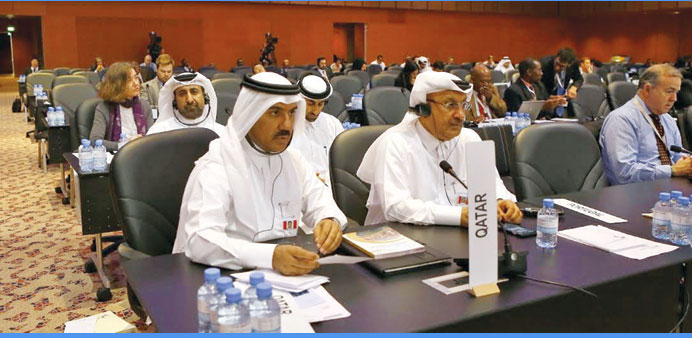Some of the delegates who participated in a session on “New forms of transnational crimes” at the UN Congress on Crime Prevention and Criminal Justice on Friday, said enacting new legal instruments would help effectively fight the the perennial offenders of such crimes.
Citing a trend of terrorists amassing proceeds through wildlife trafficking, the Russian Federation’s delegate said a new legal instrument could help to find more effective ways to combat that form of crime.
Vietnam’s speaker said winning the fight against wildlife crime meant tackling the “whole chain”, including supply, trafficking and consumption.
While urging the member states to use the Convention on International Trade in Endangered Species of Wild Fauna and Flora for guidelines, she said her country is preparing impeccably to host the Third Conference on Illegal Wildlife Trade in 2016.
Fraudulent medicine is causing hundreds of thousands of deaths and the forum must act on the new crimes, some delegates said.
India’s speaker, however, said he was concerned about the definition of the term, which could include products that infringed on intellectual property rights. Before applying criminal justice guidelines, a definition must be agreed upon, he said, recommending that the World Health Organisation (WHO) was best experienced to govern that issue.
With regard to the phenomenon of foreign fighters, delegates expressed a growing concern about the spread of “homegrown” terrorism, with some of them mentioning the necessity of drafting effective national laws against the trend.
Australia’s speaker said her country had used new counter-terrorism measures to combat violent extremism and had already cancelled more than 100 passports, to prevent persons suspected of possible terrorism-related offences from travelling overseas.
As with other forms of organised crime, the world must work together in tackling terrorism, said a speaker for the Organisation of Islamic Co-operation (OIC).
Summing up a recurring theme heard throughout the day, he said: “We cannot stop crime unless we can identify its root causes and the goals they try to achieve.”
Representatives of Germany, Norway, Sudan, France, Peru, Oman, Iran, Kuwait, El Salvador, Pakistan, Saudi Arabia and Qatar also spoke.

Delegates at the 13th UN Congress on Crime Prevention and Criminal Justice.
